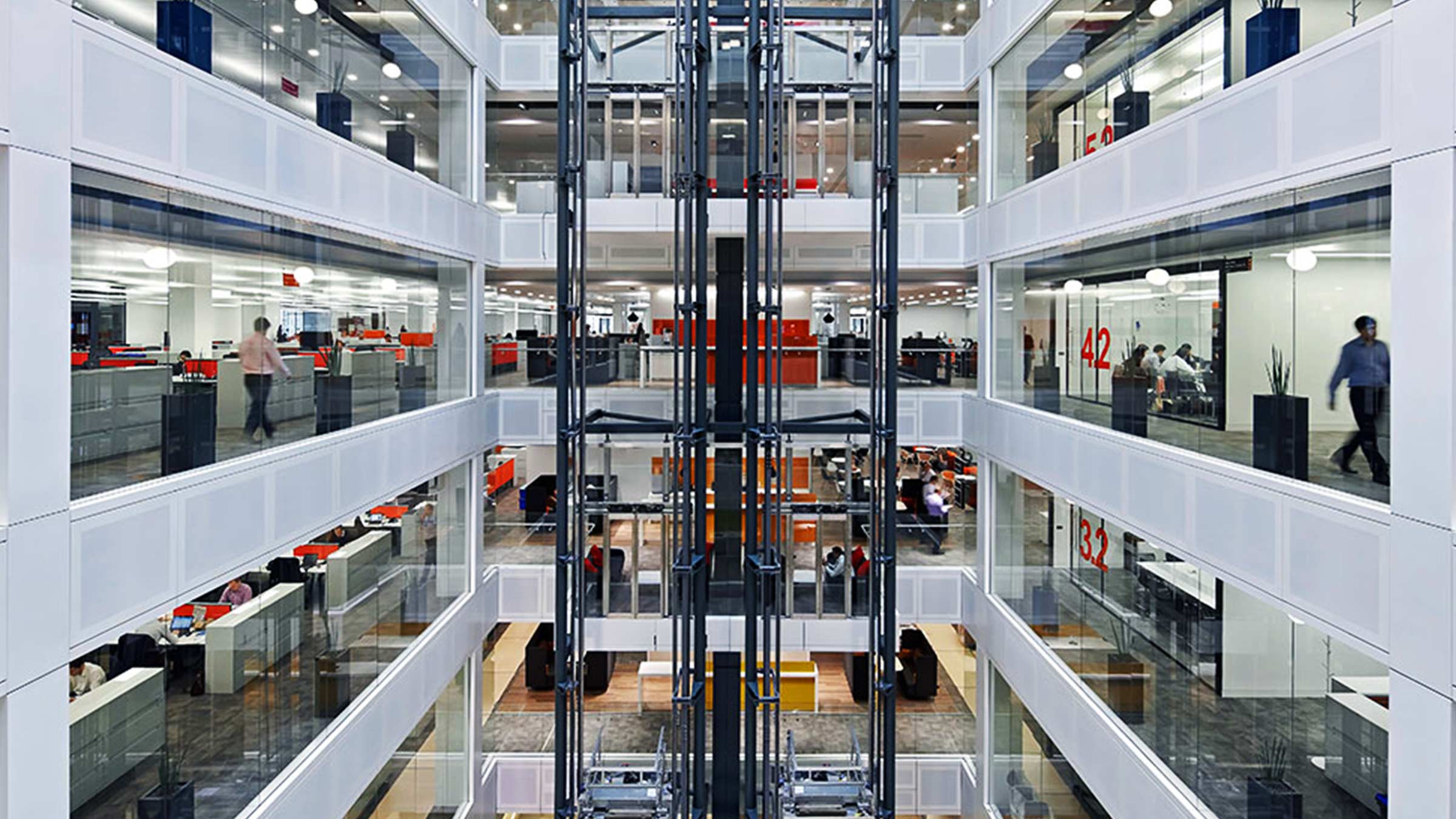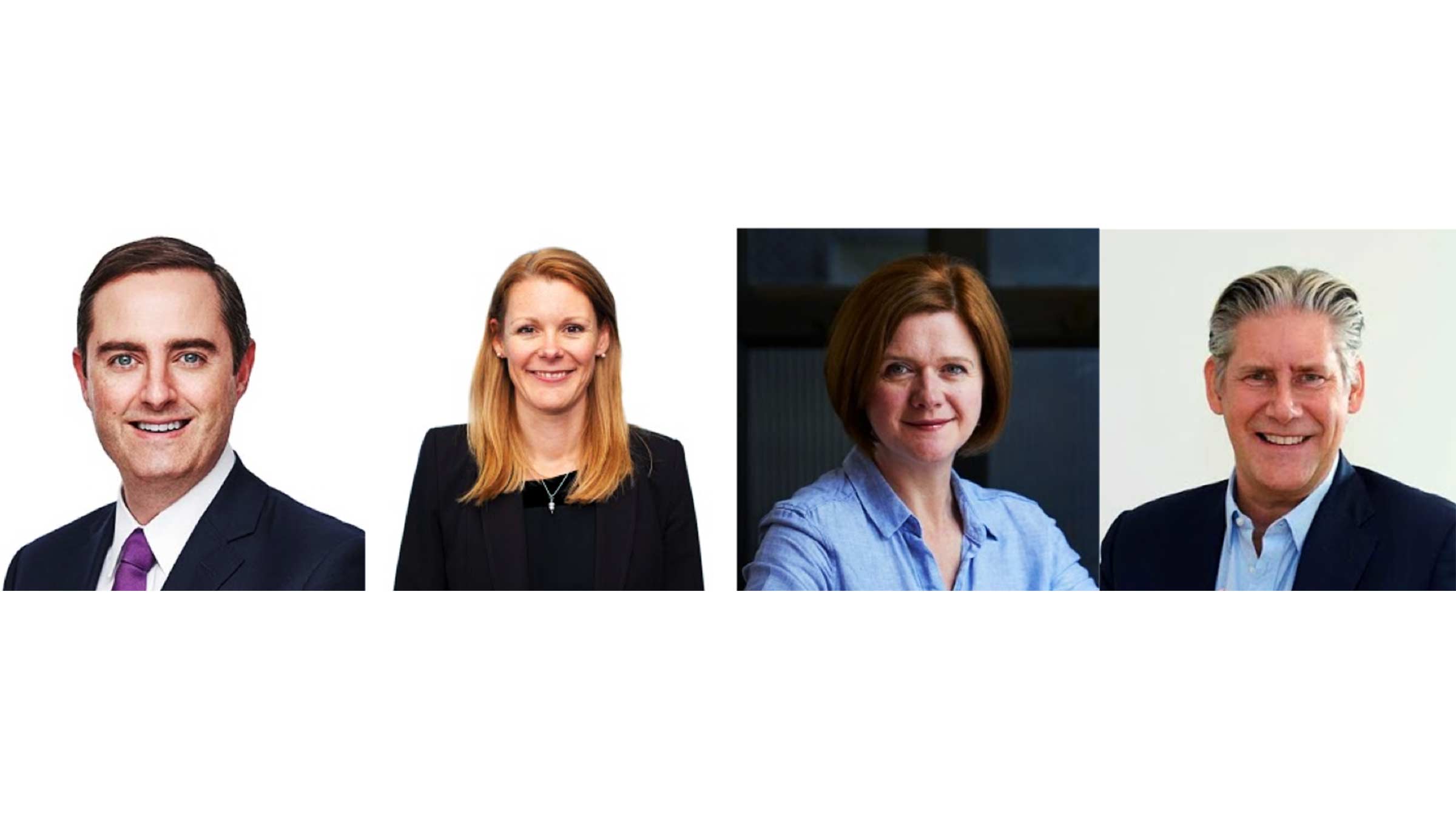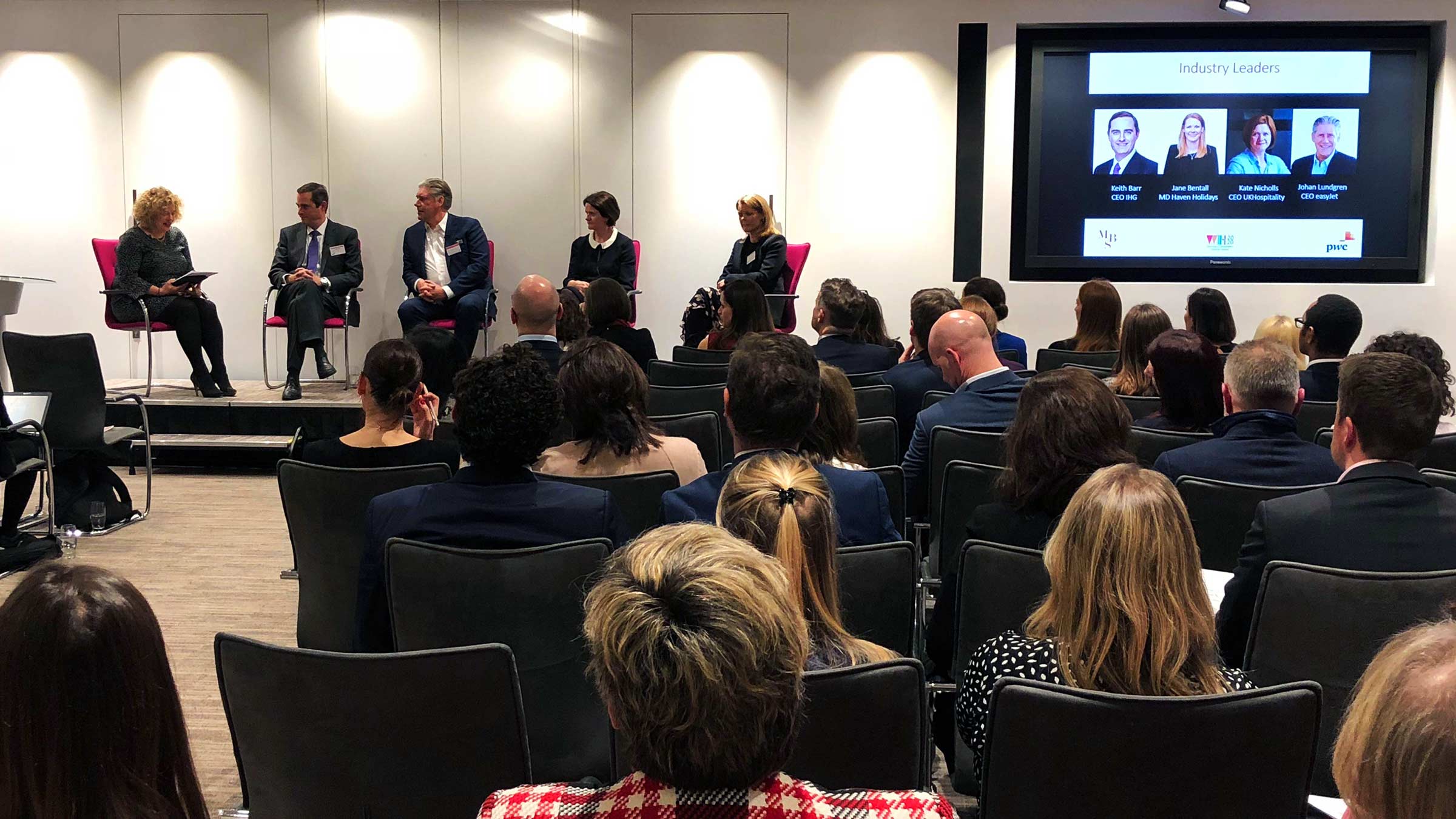Earlier this month, over 150 CEOs, Chairs and senior leaders from across the Hospitality, Travel & Leisure (HTL) sector gathered in PwC’s global headquarters at 1 Embankment Place to be presented with the findings from our 2019 Edition of the Women in Hospitality, Travel & Leisure 2020 Review.
On the stage for a panel discussion on the findings were the CEOs of global hotel group IHG, Europe’s largest airline easyJet, Bourne Leisure’s holiday parks business Haven Holidays, and UKHospitality, the largest industry body covering the sector. Eleanor Mills, Editorial Director of the Sunday Times and a passionate advocate for women in the workplace, chaired the panel discussion, while The MBS Group, PwC, the Government Equalities Office (GEO) and WiH2020 founder Tea Colaianni made up the roster of speakers.
In the audience, companies spanning the entire industry were represented. Unusually for a gender diversity event – and something that Elysia McCaffrey of the GEO highlighted – there was a near-50/50 balance of men and women taking their seats. This is important, as obviously men need to be key change agents in driving diversity.
We explored a range of key themes throughout the evening – from the findings of our research to the progress WiH2020 has made in recruiting several of the top companies to sign their charter pledging companies to progress, through to highlighting some cross-industry collaborative activities aimed at moving the dial of a diversity and inclusion agenda. One theme, however, seemed to particularly resonate with both our panel and the assembled audience was flexibility.
This is perhaps unsurprising; in a report released last week by Airbnb on the ‘Future of Work’, more flexible working options came out as the most important want of nearly 80% of respondents – even more so, when you looked at the results for millennials. Previous PwC research has also highlighted the impact of flexible working and boosting gender diversity.

As UKHospitality CEO Kate Nicholls points out, the HTL sector is the third largest private sector employer in the UK – it provides jobs for over 3.2 million people, creates £130bn in economic activity and currently accounts for one in ten of new jobs. Yet, more than most industries, the HTL sector is alive – often most active, in fact – at the most unsociable hours.
Our panellists agreed that providing more flexibility in working practices could help make the sector more attractive – both to millennials starting their careers and to the brightest and best senior hires coming from outside the sector.
Continuous advancements in technology, combined with a serious approach to tackling traditional assumptions in the way we work, can allow us to create new practices that appeal to a more diverse talent pool. The panel were also keen to highlight the importance of increased flexibility being available to all staff, male and female, for it to truly improve gender diversity.
Just as important as attracting new talent is the ability to retain your top team. Here, Jane Bentall, the MD of Haven Holidays, had a particularly compelling story of her experience with Bourne Leisure: “I told John Cook, one of the founders, that I was expecting a baby and that it would be impossible to do a nationwide operations role and look after a young family. John said they would make it work for me… they were true to their word: they enabled me to work three days a week and moved me from an operations role to become the group finance director, so I could be closer to home”
We must all be prepared to use whatever is in our toolkit to doggedly retain our best employees in the drive towards greater diversity. Moreover, flexibility isn’t necessarily a one-size-fits-all solution for the industry – a point captured brilliantly by easyJet’s Johan Lundgren: “pilots can’t work from home”. Embracing pluralism and difference, he argued, is the key. “Treating each member of staff as an individual is how we achieve true diversity and inclusion.”
Bringing the panel session to a close, Eleanor Mills challenged the four leaders on stage to describe how they personally role model flexibility – a popular question with the audience. Keen to tackle the ‘punch the clock’ mentality, IHG’s Keith Barr explained that when he’s not travelling, he makes sure to leave the office by 5.30pm every evening. “I go home and cook dinner for my wife and daughters. Am I online again after my kids have gone to bed? Sure, I am. But I think it’s really important to be seen as the first person in the car park – to send a signal to the business that it’s ok. We have to challenge the traditional idea of what the ‘work day’ is.”
I believe we should all reflect on Eleanor’s challenge: how do you personally role model flexibility? In her keynote address, Elysia McCaffery highlighted the government’s work on the gender pay gap, sharing the astonishing fact that at the current rate of progress, we’ll have to wait until 2043 for the pay gap to disappear. To accelerate progress and ensure we succeed in meeting targets such as those set out in the Hampton-Alexander Review, the issue needs sponsorship and leadership at the very top level within our businesses.
In our report, we highlight some of the ways companies are truly prioritising gender diversity. For example, one large pub group is piloting a call centre and buddy system to provide more centralised support out of hours as an attempt to tackle the traditional ‘always on’ culture of operational roles. Meanwhile, another hotel chain is considering adapting General Manager roles to cover two sites as a small step to gaining early multi-site experience. The challenge is not to give part-time managers fewer sites to oversee, but to provide better backup and find different ways to split responsibilities.
Today, only 7% of CEOs in FTSE listed companies in our sector are women. Given the operational nature of our businesses, unsurprisingly we found around 60% of current CEOs in the come from an operational background – yet we also know that there are fewer women in ops across the HTL sector. Therefore, we need to re-double our efforts, including increasing flexibility, to ensure that initiatives to tackle the lack of women in operations succeed – but until they really bear fruit, the importance of operational experience is likely to continue to weigh heavily on the number of possible viable female CEOs in the sector.

For some companies, implementing such changes in operations uncovers another blocker – and that’s the unions. Nervous of changing working practices it was reported to us in our interviews Union resistance to adapt, especially with regard to flexible working, was slowing progress to making the sector more attractive to female employees. Interestingly, but perhaps also unsurprisingly, we discovered that just 15% of National Executive Committee Members at the biggest unions covering our sector are women.
You can download your own copy of the 2019 Edition of the Women in Hospitality, Travel & Leisure 2020 Review here.









